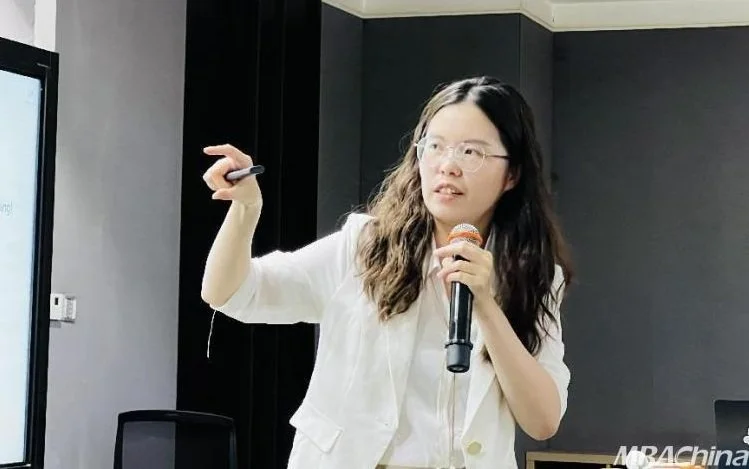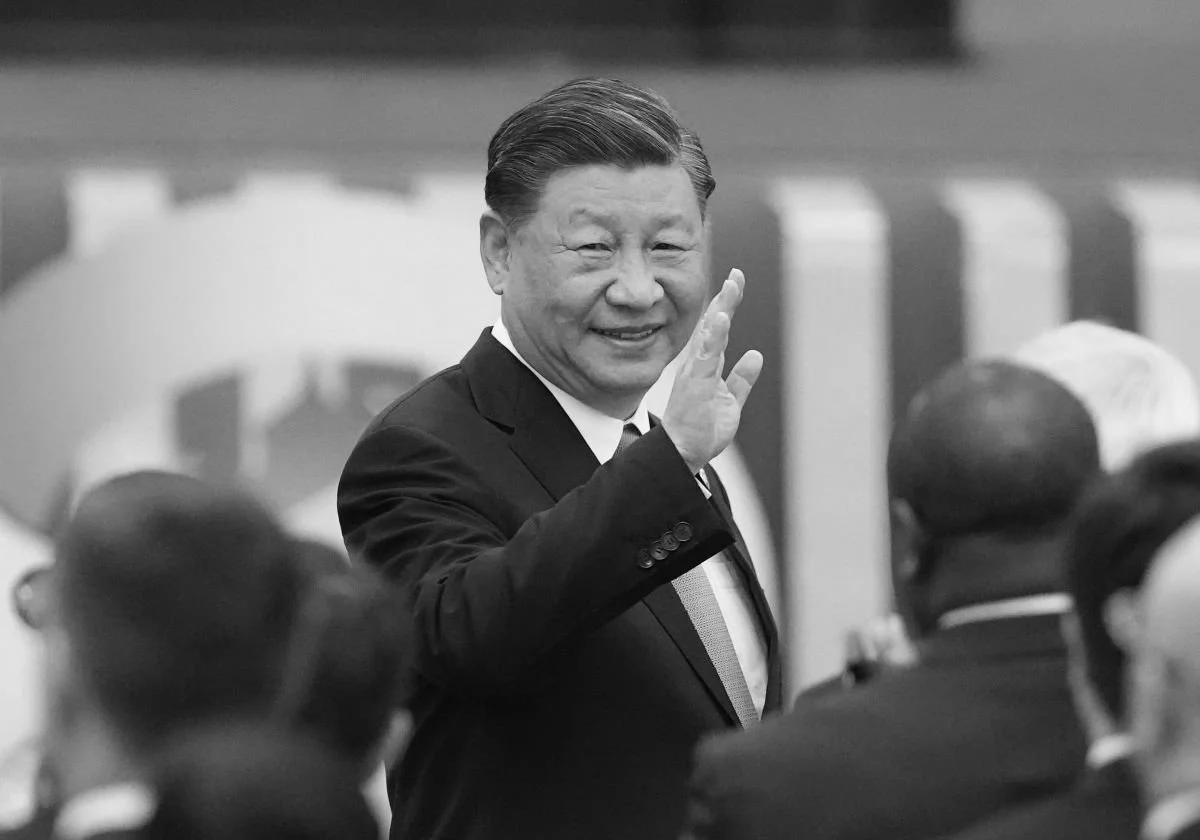Peking University Professor Criticizes Xi Jinping, Calls for Political Reform
Explosive: Female Peking University Professor Publishes Open Letter Opposing Xi Jinping, Calling China’s Current Situation “An Inextricable Predicament, A Hopeless System”
I must say, people in China truly long for change!
Yesterday, Zhang Yingjie (張穎婕), Associate Professor in the Marketing Department at the Guanghua School of Management, Peking University—my alma mater—published an article in the US-based Chinese-language media outlet Yibao criticizing the Xi Jinping era and publicly calling for political reform. She even quoted Miles (Maochun) Yu, the former Chief China Policy and Planning Advisor at the U.S. State Department, whom the CCP regards as a “major traitor.”
Below is the full English translation of her article:
Inescapable Dilemma, Irredeemable System
After studying and working in the U.S. for ten years, I returned to the familiar Beijing. Twelve years ago, after graduating from Tsinghua University, I embarked on a journey to pursue a Ph.D. in the U.S. Now, I have been teaching at neighboring Peking University for over four years. More than a decade has passed in the blink of an eye. And for more than a decade, it has all been the new era of the Communist Party under Xi’s rule. My deepest feeling, summed up, is nothing more than eight words: inescapable dilemma, irredeemable system(困局无解 体制无救 ). Thus, I take up my pen to organize the heartfelt truths and scholarly reflections accumulated over these years into an article to share with everyone. yibaochina.com
China’s National Bureau of Statistics announced that China’s GDP growth for 2024 was 5%. Seeing this figure, many people laughed. At the macro level, the economic indicators released by the authorities are definitely meant to be “protected.” I wonder how much pressure Director Kang Yi of the Statistics Bureau was under at the time. But the key issue lies in whether the structure of economic development behind it is healthy and the micro-level reactions of the people (including confidence and expectations) after seeing this figure—these are the real problems. At the micro and meso levels, various industries show a trend of widespread decline and dimming confidence. Whether it’s ordinary people or market entities, they are deeply worried about future prospects. Businesses can’t survive, money deposited in rural banks can’t be withdrawn, and people are fleeing abroad in droves. Among my colleagues, quite a few have obtained permanent residency or green cards overseas. Many work in China while their children and assets are abroad. For example, a retired university leader who is a professor at our institute spends most of the year abroad with their children, occasionally returning to vent to us. As for the dean, not to mention, they seize every opportunity to go abroad.
Growing up in China, studying and working abroad, and returning to China for family reasons… of course, I hope my country can prosper. However, as the years go by, what I’ve seen in recent years is not getting better but worse. There’s an American scholar named Miles Yu, whose most famous saying is to separate the CCP authorities from the Chinese people, which makes a lot of sense. The CCP authorities are best at painting grand visions to maintain their legitimacy. What’s more laughable is that they not only paint these visions but constantly “flip the pancake,” with policies changing overnight, official documents scrapped at will, utterly lacking credibility, and naturally, the people have no confidence.
For example, the grand vision painted in recent years was Chinese-style modernization. Among the stated goals, the most tangible one was to reach the level of a moderately developed country by 2035. According to calculations by domestic colleagues, achieving this goal requires at least 5% annual GDP growth. But how difficult it is to maintain 5%! How much of 2024’s 5% is inflated! At the end of the year, relying on concentrated exports driven by expectations to boost the numbers, a great nation is forced to depend on imports and exports to drive one-third of its economic growth—this is extremely abnormal. Not to mention the economic structure behind this 5%, which can hardly be called “high-quality.” The policy goals set by the CCP itself are often seen as a joke. yibaochina.com
But in fact, anyone who has studied a bit of economics knows that with the diligence and wisdom of the Chinese people, if the system and mechanisms are chosen correctly, achieving a per capita GDP of at least $20,000–$30,000 is not difficult. In the 1980s, with the opening-up and reform, the negation of class struggle, and the comprehensive liberation of social productive forces, China experienced over 30 years of rapid development. After the 18th Party Congress, growth slowed from 10% to struggling to maintain 5% today, for many reasons. The real estate economic model, economic laws, international situations, and so on, discussed by scholars, are all valid points. But fundamentally, it’s the contradiction between the economic base and the superstructure. Without reform of the superstructure, the developmental dividends released by reform and opening-up are nearing their end. The previous leader saw this clearly. Wen Jiabao’s original words were that without successful political system reform, economic system reform cannot be fully realized.
If the political system is not reformed, it will strangle many originally beneficial development opportunities! A well-known example is that when Li Keqiang was in office, he “allowed” the initial growth of WeChat and shared bikes, which led to today’s representative enterprises in the platform and sharing economies. Of course, Premier Li Keqiang was out of place in the political environment of this era. Many things in today’s China are a dark humor of the system and mechanisms—it will strangle things that are beneficial to its own development. At the smallest level, every individual is constrained by many anti-human systems. At the macro level, policies don’t serve the main contradictions but are convoluted. With the entire system like this, socioeconomic development inevitably hits a bottleneck. yibaochina.com
If the political system is not reformed, the current and future dilemmas will remain unsolvable! In the summer of 2021, the massive flood in Henan, according to official reports, caused a few hundred deaths and disappearances. In fact, when we stood at the Jingguang Road tunnel in Zhengzhou, seeing bodies floating on the road, we knew the actual death toll was understated by at least tenfold! In the past couple of years, social hostility has grown heavier, with frequent violent incidents of slashing and injuring people. One of the biggest jokes of the CCP authorities is that their words and actions are completely opposite. For example, the Party Constitution states “seek truth from facts, be pragmatic,” yet many of the authorities’ words and deeds completely contradict this, and the people bluntly say, “We’ve seen too many vivid examples; we’re not so easily fooled anymore!”
If the political system is not reformed, no matter how much the narrative of optimism is promoted, it’s an irredeemable system! Sometimes people ask, can scholars at Peking University say a few fair words to reach those above? But in reality, intellectuals can do nothing. Apart from some minor technical tweaks, they don’t dare speak the truth and can only go along with promoting the so-called narrative of optimism. The systems and mechanisms in universities, research institutes, and enterprises follow suit, marked by impetuousness and utilitarianism, with no trace of long-termism. Although the soil for innovation has largely been eroded, in this vast country, occasional high-quality innovations like Black Myth: Wukong and Deepseek still emerge. But under this system, such sparks are unlikely to become a prairie fire.
Having said so much, there’s no real solution. “The problem lies in the economy, but the root is in politics.” If a solution must be proposed, it would likely be what the vast majority of Chinese people, market entities, and even most within the system expect: political system reform, political system reform, political system reform! Important words must be said three times!
5/14/2025
Professor Zhang Yingjie. Source: MBAChina
Truth saves lives. Please support! 👇 真相能救命,敬請支持!👇
🌺Donate 捐款贊助: https://donorbox.org/support-inconvenient-truths-by-jennifer-zeng
🌺Membership 註冊會員:https://bit.ly/3biCEk5
🌺Bitcoin 捐款:bc1qlkkvwyvw96x3xx6jgzkhlnnv0nv3d9vm078vfd
🍀English X/Twitter 英文推特:https://twitter.com/jenniferzeng97
🍀Chinese X/Twitter 中文推特:https://twitter.com/jenniferzeng15
㊙️English Channel 英文頻道:https://gjw.us/jenniferz
㊙️Chinese Channel 中文頻道:https://www.ganjingworld.com/s/aWRQXgBgvv
👉Jennifer’s Bio 曾錚簡歷:https://www.jenniferzengblog.com/about/
㊙️Website 網站:https://www.jenniferzengblog.com/






